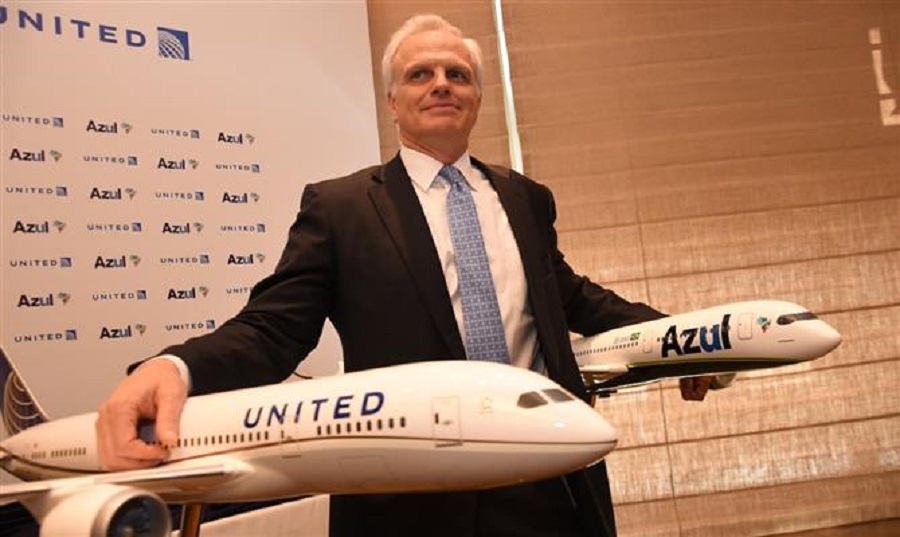RIO DE JANEIRO, BRAZIL – David Neeleman is Brazilian by birth, but, a child of US citizens, he left Brazil at the age of 5 and only returned after succeeding in aviation: he founded Morris Air and JetBlue in the U.S., as well as WestJet in Canada. And he repeated the endeavor here, in 2008, when he founded Azul.
Now, with newcomer Breeze, the goal is to replicate the successful formula in Brazil – and with an added dash of innovation.

When Azul was introduced, it won market share by flying to destinations with few flight offers while using smaller aircraft (such as EMBRAER’s E190 and E195). In the case of Breeze, the entrepreneur said that flights will cost less than US$100 and the fees for checking luggage and business class travel will be cheaper than its rivals.
University students from Utah, the home state of Breeze, have been selected as interns for in-flight service until graduation – and they will be paid US$1,200 for 15 days of work, as well as housing and up to US$6,000 a month for online courses. To reduce operating costs, the call center has been replaced by an app that will handle all interaction with customers.
“[We will] send a message to customers’ cell phones, ‘Hello, we see that you will be flying today. Would you like to buy a filet mignon sandwich to be hand-delivered to your seat?’ And just add these fun little add-ons, where you can click ‘yes, yes, yes.’ And we can simply keep adding to the credit card,” Neeleman said during the interview.
Breeze’s Airbus A220
For now, Breeze is expected to operate only 15 EMBRAER aircraft – including older generation units loaned by Azul. But another 60 units have been ordered, and according to Reuters, 20 more aircraft are expected. As a highlight, travel costs will be up to 30% lower than for Gol’s Boeing 737.
During the World Aviation Festival, an event held last week, the company’s founder guaranteed that none of the aircraft will be retired after the arrival of European models – this is because, while the EMBRAER units will be concentrated on trips of up to two hours, the model produced by Airbus will serve as an alternative for long hauls.
Breeze’s routes have not been disclosed, but the focus will be on the leisure market. According to Forbes, the network should expand to 15 cities in July, mid-summer in the USA, mainly vacation destinations in the southeast – which includes Florida – connecting smaller airports with non-stop flights on weekends. And there is yet another niche: to include the option of additional services, such as car rental.
Amid the commercial aviation sector crisis, the new airline received US$100 million from investors and the founder himself. But this amount is only enough for half of the company’s costs, which are estimated to be US$57.5 million to start operating and another US$149.6 million during the first year. But Neeleman’s goal is to make a profit by next year.
In an attempt to circumvent the initial financial strain and relieve Breeze’s cash flow, the new Airbus aircraft are to be sold to leasing companies. Then all units will be leased back at more easily negotiated rates. The reason for this is that, with lower demand during the Covid-19 pandemic, lease rates were reduced by up to 23%, according to Cirium aviation consultancy.
Source: Exame

